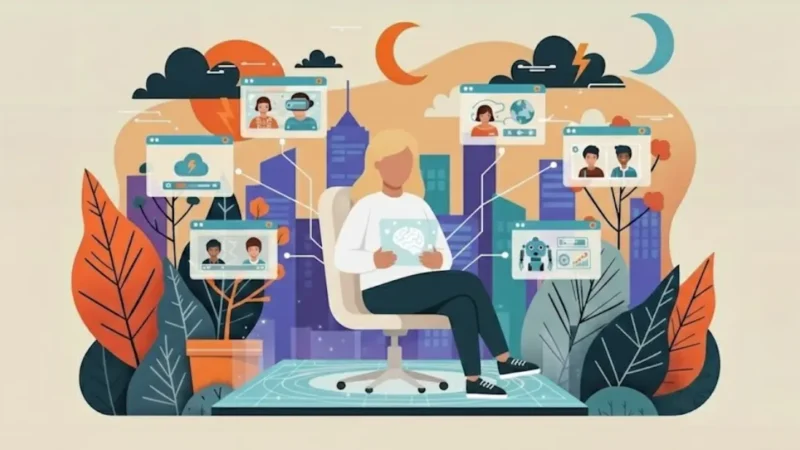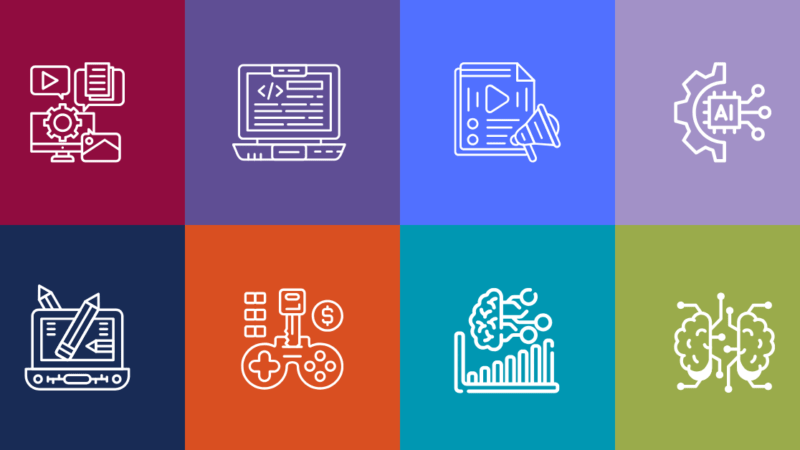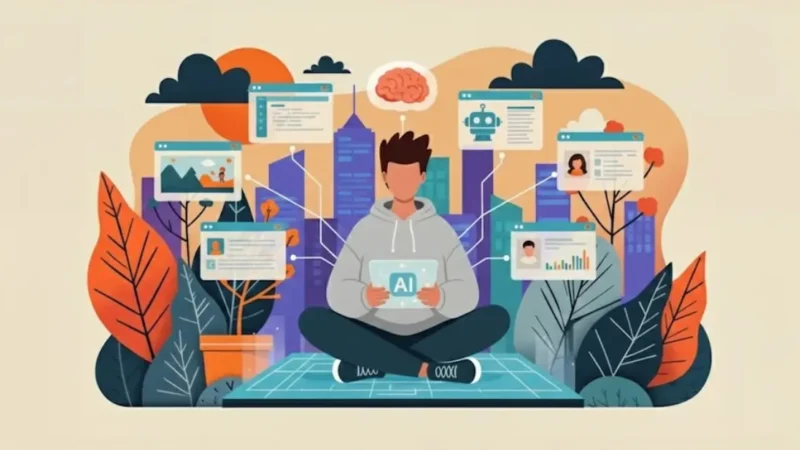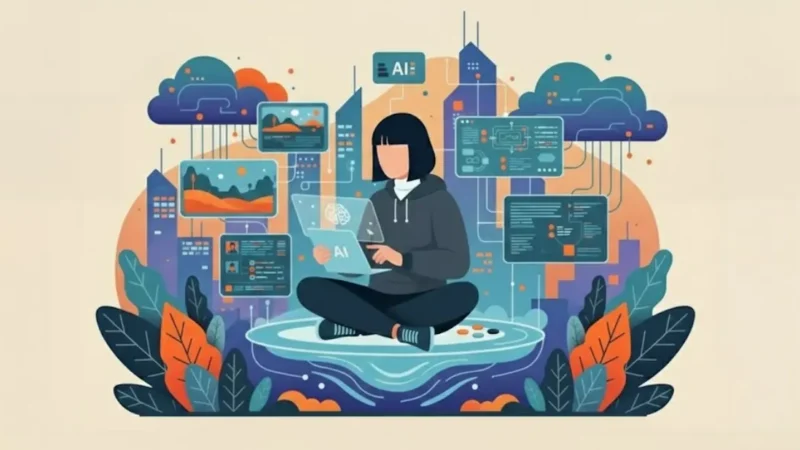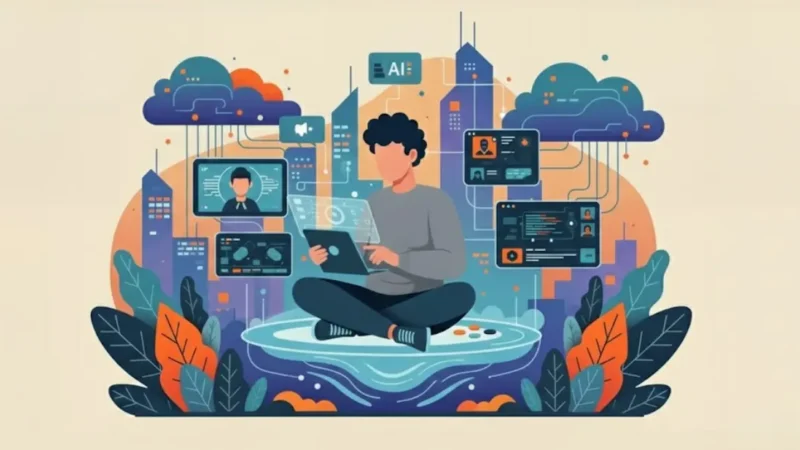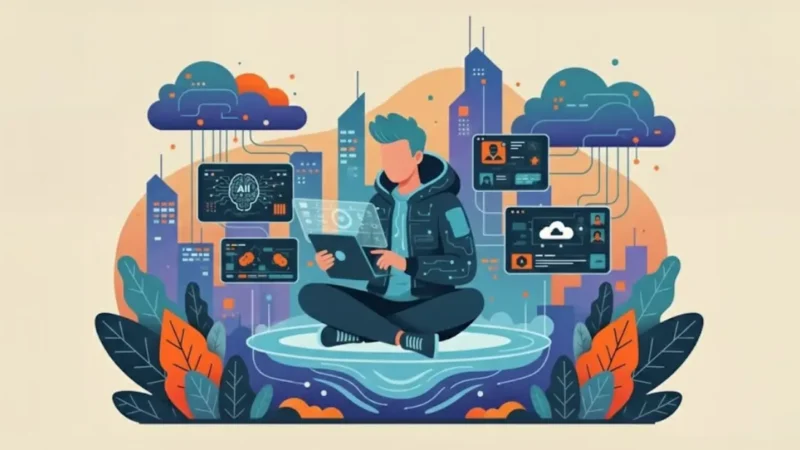The New Game Engine: How AI is Revolutionizing the Gaming Industry
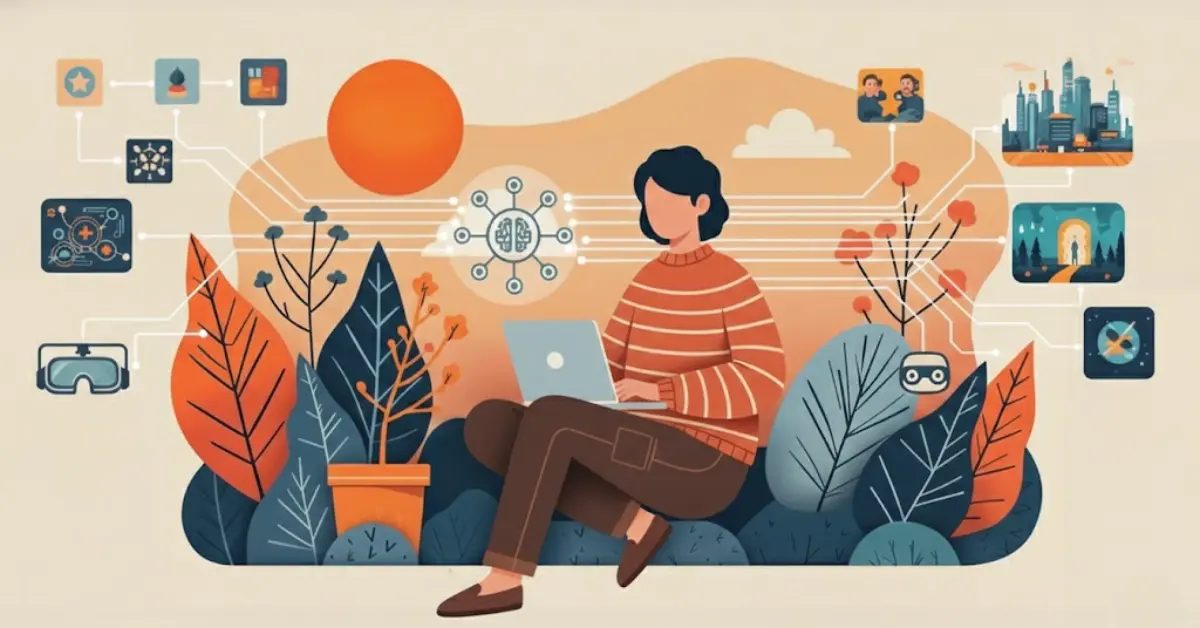
Introduction
The gaming industry has always been a race toward the cutting edge, but as we settle into 2026, the pace has shifted from “evolutionary” to “revolutionary.” If you thought the jump from 2D to 3D was significant, look at what Artificial Intelligence is doing right now.
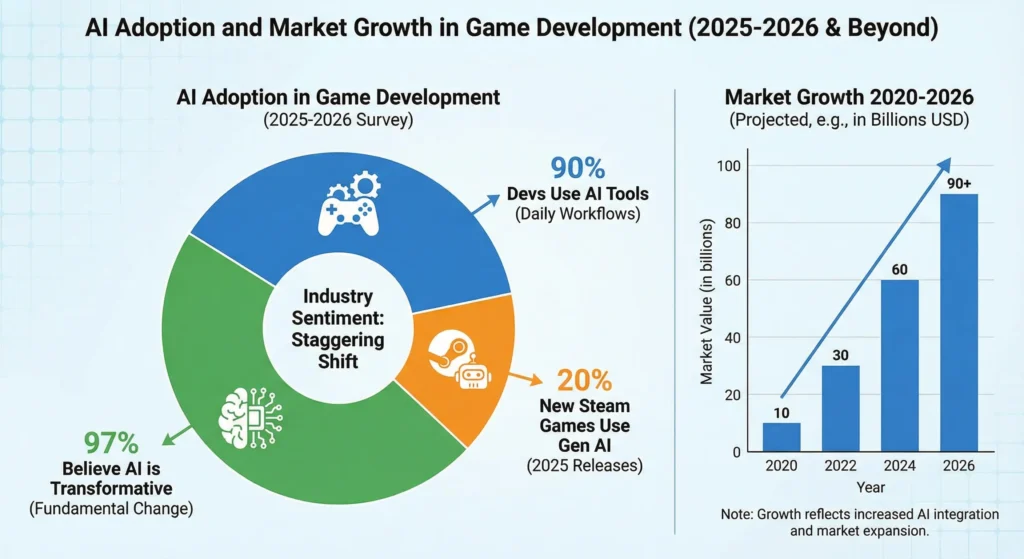
The statistics for 2025-2026 are staggering. A recent industry survey reveals that 90% of game developers now utilize AI tools in their daily workflows—a massive leap from previous years. Even more telling is the sentiment: 97% of industry professionals believe AI is fundamentally transforming game development. We aren’t just talking about background assets anymore; roughly 20% of new releases on Steam in 2025 disclosed the use of Generative AI, effectively doubling figures from just two years prior.
With the global gaming market projected to surpass $250 billion by the end of 2026, the driver of this growth is clear: AI-driven personalization and unprecedented efficiency.
Gone are the days of purely scripted games where every player experienced the exact same loop. Today, we are witnessing dynamic worlds that breathe and react. From 2025 breakthroughs like Google’s GameNGen-which simulates gameplay without a game engine—to tools like Intangible, the very fabric of how we play is being rewritten.
In this deep dive, we will explore how AI has moved from a simple “enemy bot” to the architect of entire universes, the tools defining 2026, and the ethical challenges we must navigate.
The Evolution of AI in Gaming: From Pac-Man to Procedural Universes
To understand where we are going, we have to respect where we started. AI in gaming isn’t “new,” but its definition has changed radically.
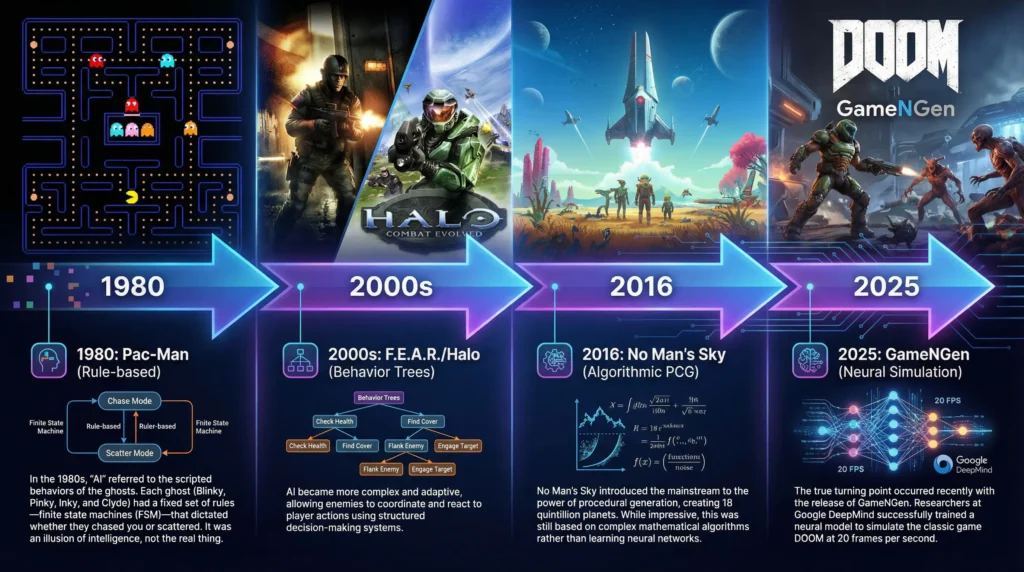
In the 1980s, “AI” referred to the scripted behaviors of the ghosts in Pac-Man. Each ghost (Blinky, Pinky, Inky, and Clyde) had a fixed set of rules—finite state machines (FSM)—that dictated whether they chased you or scattered. It was an illusion of intelligence, not the real thing.
Fast forward to 2016, and No Man’s Sky introduced the mainstream to the power of procedural generation, creating 18 quintillion planets. While impressive, this was still based on complex mathematical algorithms rather than learning neural networks.
The 2025 Milestone: The true turning point occurred recently with the release of GameNGen. Researchers at Google DeepMind successfully trained a neural model to simulate the classic game DOOM at 20 frames per second. This wasn’t a game engine rendering graphics; it was an AI predicting the next frame based on the previous one. This marked the moment AI graduated from being a feature inside a game to becoming the game engine itself.
AI as the Unseen Developer: Transforming Game Creation in 2025-2026
The “Unseen Developer” is no longer a metaphor. In 2026, AI acts as a co-pilot, handling the heavy lifting of coding, asset creation, and testing. Here is how the toolkit has evolved.
How is Advanced Procedural Content Generation Changing World-Building?
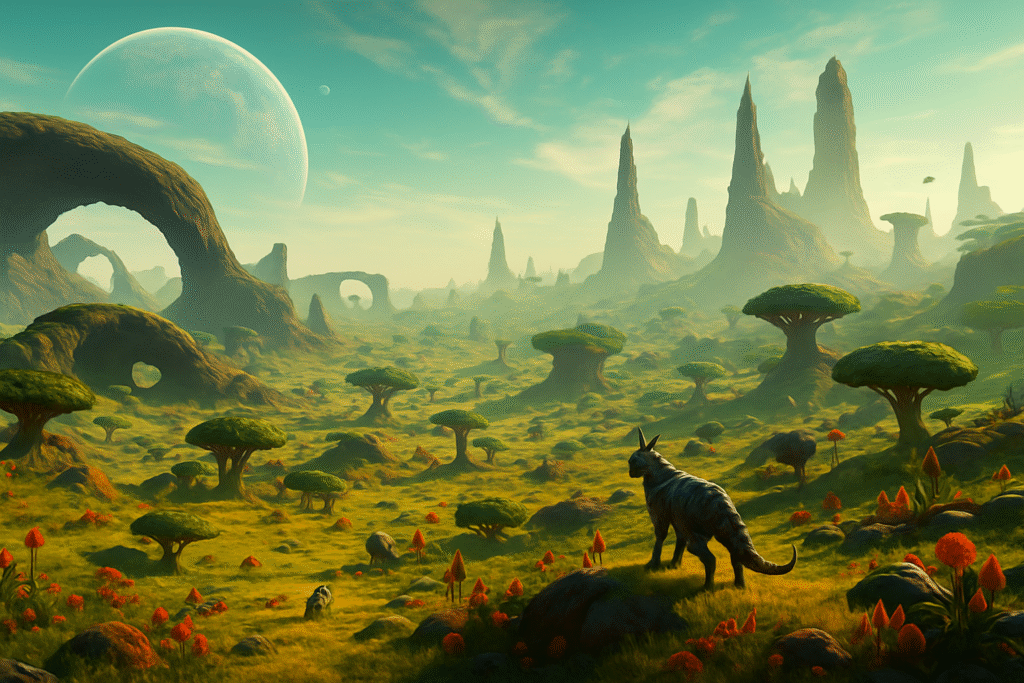
Procedural Content Generation (PCG) has evolved from random terrain scattering to intelligent design. Tools like Promethean AI and Blackshark.ai are now industry standards. They don’t just “make trees”; they understand context. An artist can simply type, “Create a post-apocalyptic 1980s diner covered in moss,” and the AI populates the scene with context-aware assets.
Newer entrants like Scenario allow developers to train custom models on their own art style, ensuring that every AI-generated texture or model fits the game’s unique aesthetic perfectly. Meanwhile, Skybox AI is allowing developers to generate 360-degree immersive environments in seconds, drastically reducing the time needed to build skyboxes and distant horizons.
Can AI Create Truly Human-Like NPCs?
The days of the “arrow to the knee” repetitive dialogue are over. We have moved from the scripted “Nemesis System” of Shadow of Mordor to fully generative agents.

Companies like Inworld AI and Replica Studios have integrated Large Language Models (LLMs) directly into game engines. In 2025, major studios like Sony and EA began experimenting with architectures equivalent to GPT-5 and Llama 4 to drive NPC logic. These characters remember your previous interactions, have distinct personalities, and can negotiate or lie to you without a single line of pre-written script. They perceive the game world, form goals, and execute actions dynamically.
What Comes After 4K: How Do DLSS and FSR Impact Performance?
Graphics are no longer limited by raw hardware power alone; they are defined by AI upscaling. NVIDIA’s DLSS 4 (Deep Learning Super Sampling) and AMD’s FSR 3+ have revolutionized performance.
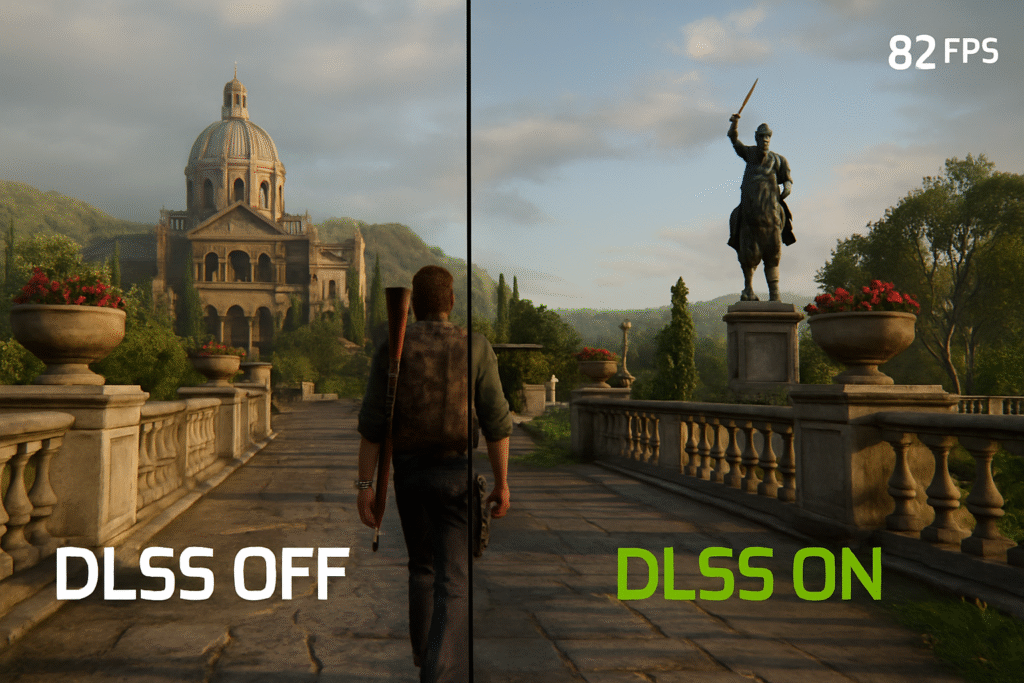
By rendering a game at a lower resolution (e.g., 1080p) and using AI to upscale it to 4K or 8K, developers can deliver photorealistic ray tracing at high frame rates. This technology “hallucinates” the missing pixels with startling accuracy, making high-fidelity gaming accessible on mid-range hardware.
How Does AI Streamline Testing and Debugging?
One of the most expensive parts of game dev is Quality Assurance (QA). AI is slashing these costs.
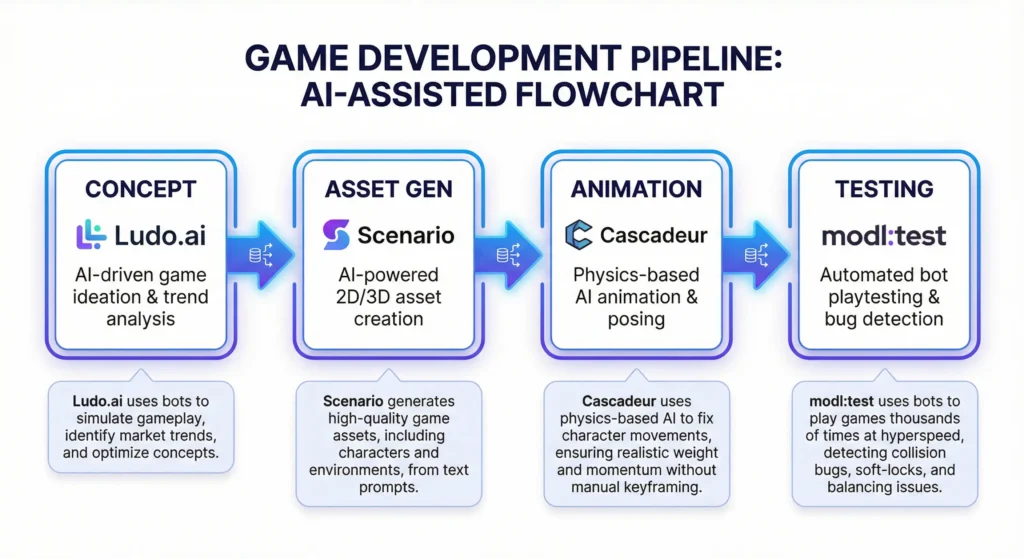
Tools like modl:test and Ludo.ai use bots to play games thousands of times at hyperspeed, detecting collision bugs, soft-locks, and balancing issues that humans might miss. For animation, Cascadeur uses physics-based AI to fix character movements, ensuring realistic weight and momentum without manual keyframing. The ROI is undeniable: Studios are reporting a return of roughly $3.50 for every $1 invested in AI automation tools.
Are We Moving Toward Full AI Game Engines?
This is the frontier. Intangible (currently in beta) represents a new class of engine that blends traditional rendering with generative AI, allowing for assets that shift and mutate in real-time based on the narrative. Coupled with the proof-of-concept from GameNGen, we are looking at a future where the “engine” is a neural network that dreams the game into existence as you play it.
AI-Powered Games: Standout Case Studies from 2025
The technology is exciting, but the games are where it counts. Here are the titles and studios leading the pack in 2025-2026.
- The Evolution of AI Dungeon & Infinite Craft: What started as text adventures have evolved into fully visualized worlds. AI Dungeon now incorporates image generation and voice synthesis, creating a D&D campaign that never repeats. Infinite Craft showed the viral potential of simple generative logic, allowing players to combine elements to create literally anything—from “Water” to “Cyberpunk Pope.”
- PUBG & Krafton’s “Virtual Friend”: Krafton (makers of PUBG) have pushed boundaries with AI teammates that communicate via voice, understand strategy, and provide cover fire indistinguishable from human players.
- Ubisoft’s NEO NPCs: Ubisoft’s “Ghostwriter” tool has evolved into fully integrated narrative agents in their latest open-world titles, allowing NPCs to have “bad days,” “secrets,” and dynamic relationships with the player.
- The Steam Explosion: With over 8,000 games on Steam now utilizing some form of generative AI, indie developers are creating AAA-scale worlds with small teams, proving that AI is the great equalizer.
The Business Side: Data, Monetization, and Security
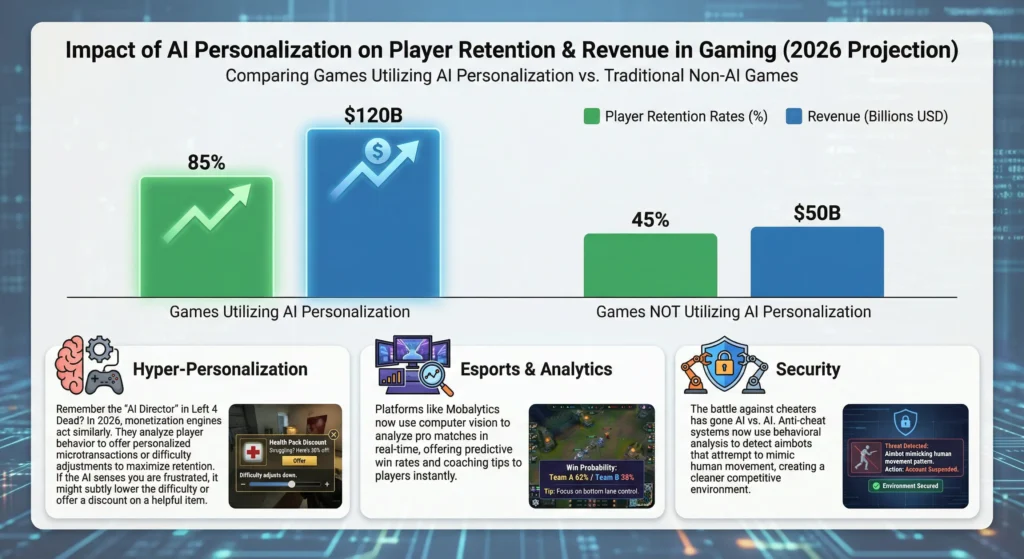
AI isn’t just changing how games are made; it’s changing how they are sold and managed.
Hyper-Personalization: Remember the “AI Director” in Left 4 Dead? In 2026, monetization engines act similarly. They analyze player behavior to offer personalized microtransactions or difficulty adjustments to maximize retention. If the AI senses you are frustrated, it might subtly lower the difficulty or offer a discount on a helpful item.
Esports & Analytics: Platforms like Mobalytics now use computer vision to analyze pro matches in real-time, offering predictive win rates and coaching tips to players instantly.
Security: The battle against cheaters has gone AI vs. AI. Anti-cheat systems now use behavioral analysis to detect aimbots that attempt to mimic human movement, creating a cleaner competitive environment.
However, this comes with turbulence. The industry has seen backlash regarding data privacy and the usage of player voice data for training models.
The Titans: Top Companies, Startups, and Tools in 2025
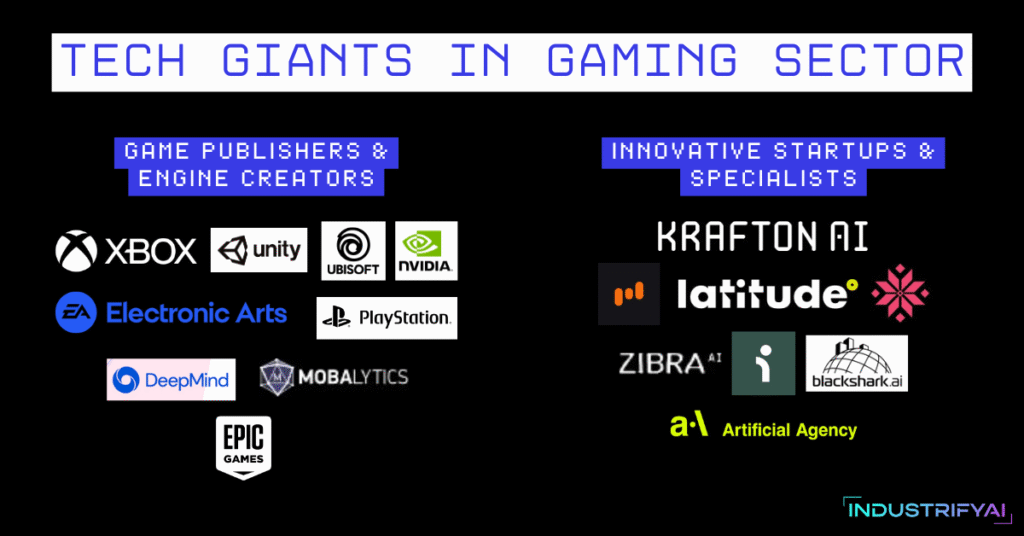
Who is building this future? The landscape is a mix of entrenched giants and agile disruptors.
The Big Tech Incumbents:
- NVIDIA: The hardware backbone (GPUs) and software magic (DLSS, Ace for Games).
- Google DeepMind: Pushing the boundaries of simulation with GameNGen.
- Unity & Epic Games: Unity’s Muse and Unreal’s MetaHuman are making high-end AI tools accessible to everyone.
- Microsoft/Xbox: Leveraging Azure OpenAI services to power dynamic dialogue and quest generation.
The Disruptive Startups:
- Inworld AI: The leader in NPC brains.
- Promethean AI: The leader in environment generation.
- Rosebud AI: Enabling rapid prototyping of games from text descriptions.
- Scenario: GenAI for game assets.
- Leonardo.ai: High-fidelity 2D asset generation.
The Horizon: Generative AI, AGI, and Beyond
As we look toward late 2026 and 2027, the line between “playing” and “creating” will vanish.
AI-on-Demand Gaming: We are approaching a reality where a player can say, “I want a mystery game set on a moon base in the style of 1940s noir,” and the AI generates the assets, logic, and dialogue instantly.
VR/AR Integration: Apple and Meta are heavily investing in AI to populate their spatial computing worlds. Imagine a mixed-reality game where AI characters sit on your actual couch and react to the lighting in your physical room.
The AGI Dream: While Artificial General Intelligence (AGI) remains theoretical, gaming is the perfect sandbox for testing it. Agents that can learn to play any game, solve any puzzle, and communicate naturally are the precursors to true AGI.
Challenges, Ethics, and Backlash in 2025
We cannot discuss this revolution without addressing the friction.
Job Displacement: A major concern is the workforce. Surveys indicate 30% of artists and writers feel their roles have been negatively impacted or consolidated due to AI efficiency. The industry is currently navigating a painful transition period of layoffs and restructuring.
Copyright & Data Ethics: The legal battles of 2024 regarding training data have led to stricter regulations in 2026. Developers must now be transparent about their training sets, ensuring that the “creative” AI isn’t simply plagiarizing human work.
Cost of Compute: While AI saves labor costs, the server costs for running real-time LLMs for millions of players are astronomical. Finding a sustainable economic model is the industry’s next boss fight.
Conclusion: Level Up Your Gaming Future
The transformation of the gaming industry is total. We have moved from the rigid, scripted corridors of the past to the boundless, hallucinated horizons of the future. Whether you are a developer looking to streamline your pipeline or a gamer hungry for deeper immersion, AI is the key to unlocking the next level.
The tools are here. The market is ready. The only question left is: Are you ready to play?
Frequently Asked Questions
Q: What are the best AI tools for game developers in 2026?
A: Top tools include Unity Muse and Scenario for asset generation, Inworld AI for intelligent NPCs, Cascadeur for animation, and modl:test for automated QA.
Q: Will AI replace game developers?
A: AI is unlikely to replace developers entirely but will replace tasks. It acts as a force multiplier, allowing small teams to achieve AAA results, though it is reshaping job descriptions significantly.
Q: What is Google’s GameNGen?
A: GameNGen is a research breakthrough from Google DeepMind that simulates the game DOOM using a neural network in real-time, without a traditional game engine.

